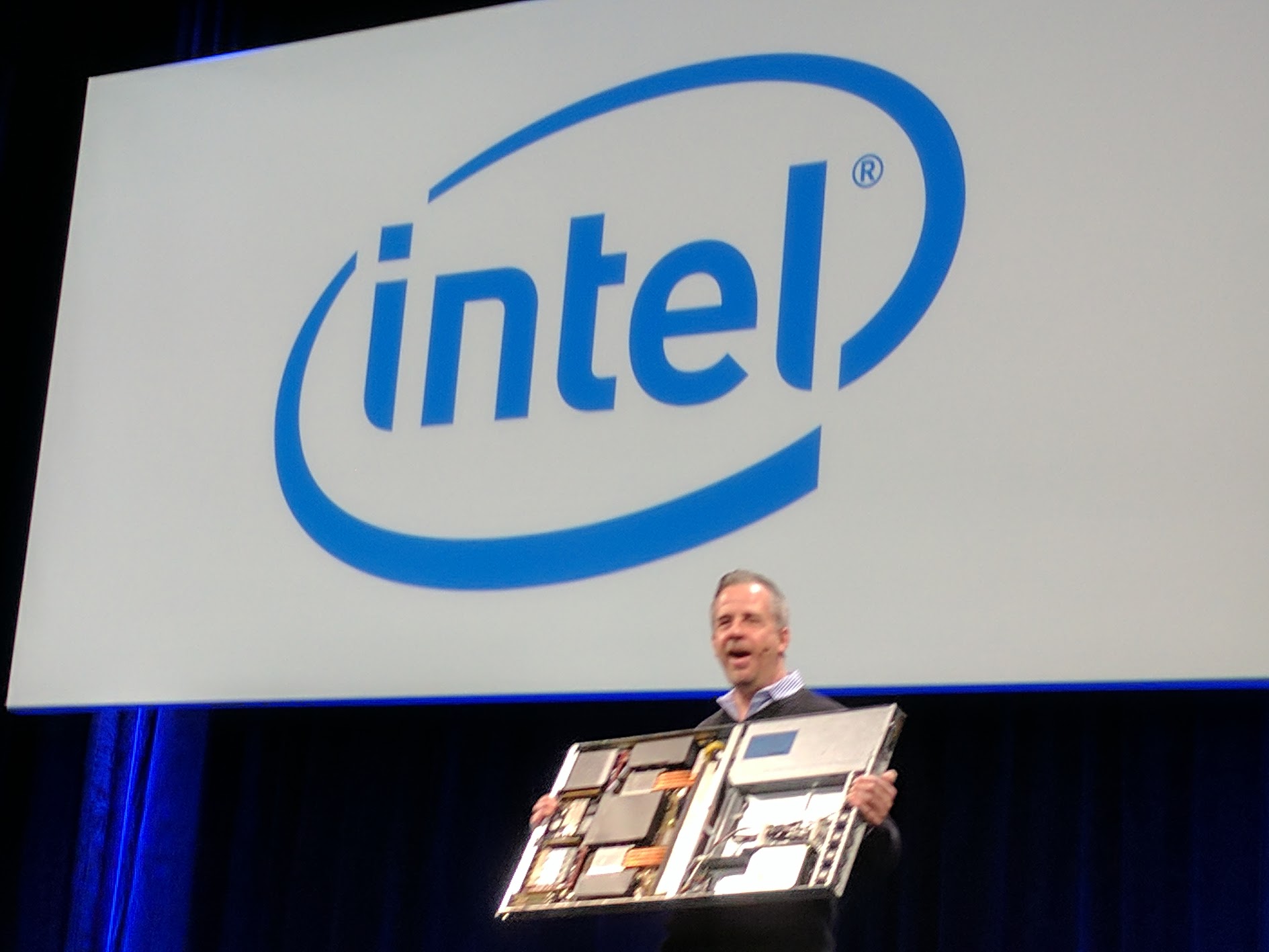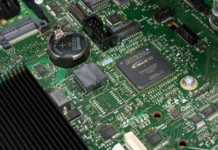Intel is the incumbent in the data center in 2017. Intel Rack Scale Design we have covered before but the company is at OCP Summit 2017 and pushing the standard heavily. While other vendors are excited that their hardware is in OCP, Intel is pushing RSD as a higher-level message and talking about power provisioning and management at scale. Intel is also talking silicon photonics, Skylake-EP and Arria 10 FPGAs. Here are the major points from the keynote.
Project Lightning for JBOF NVMe Storage
Intel highlighted the Project Lightning OCP standard which is essentially a JBOF NVMe storage chassis for high-speed, low latency storage.
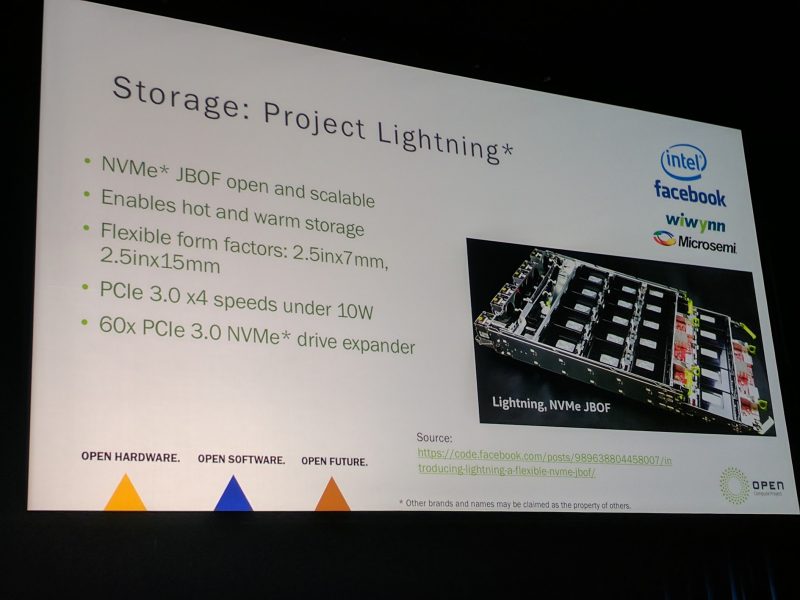
The idea is to be able to handle 60x PCIe 3.0 NVMe drives in a JBOF configuration. Project Lightning utilizes the Microsemi PCIe switches we highlighted in 2016. Along with the system, Intel said it would support both 2.5″ x 7 and 2.5″ x 15″ (current generation) NVMe drive designs. New Intel NVMe SSDs will support PCIe 3.0 x4 speeds at 10W for the 2.5″ x 7mm. Also, there will continue to be full size 2.5″ x 15mm drives with up to 25W power consumption for more performance.
Intel Silicon Photonics
Intel has been touting Silicon Photonics for years. At the OCP Summit 2017, Intel announced that its PSM4 module hit volume production in August 2016. The new 100G CWDM module is ramping up now.
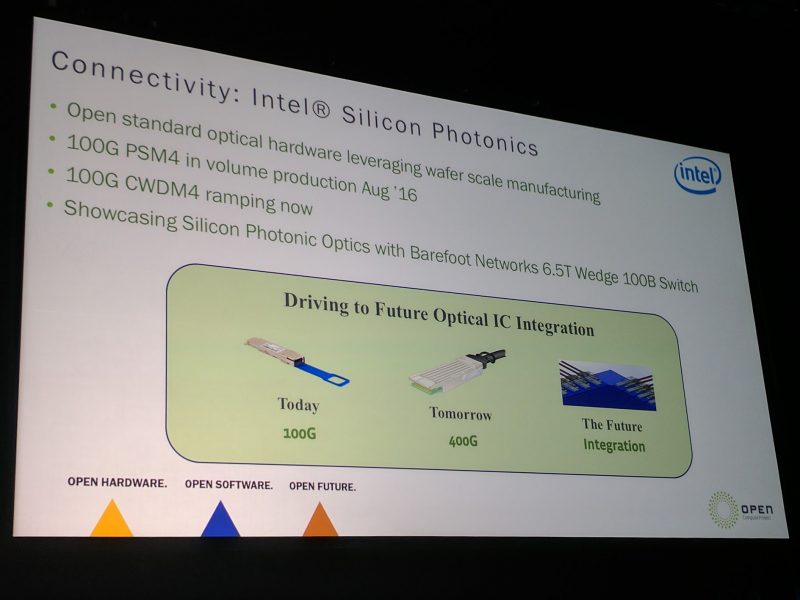
Intel also has stated it is developing 400G next-generation products. Jason Waxman also showed off an actual module.
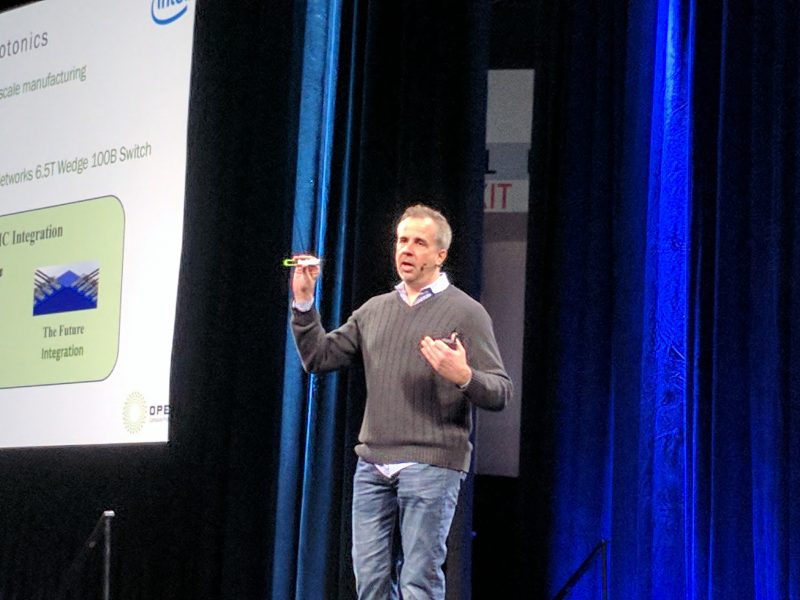
We are still a bit off from true integration, but the movement of Omni-Path onto Skylake-EP and Xeon Phi packages is clearly showing where Intel is going with the technology.
Intel Server Board S7200AP (Adams Pass) and Platform OCP
One of the more interesting announcements at Open Compute Summit 2017 was that Intel submitted an Intel Xeon Phi x200 platform to the OCP foundation.
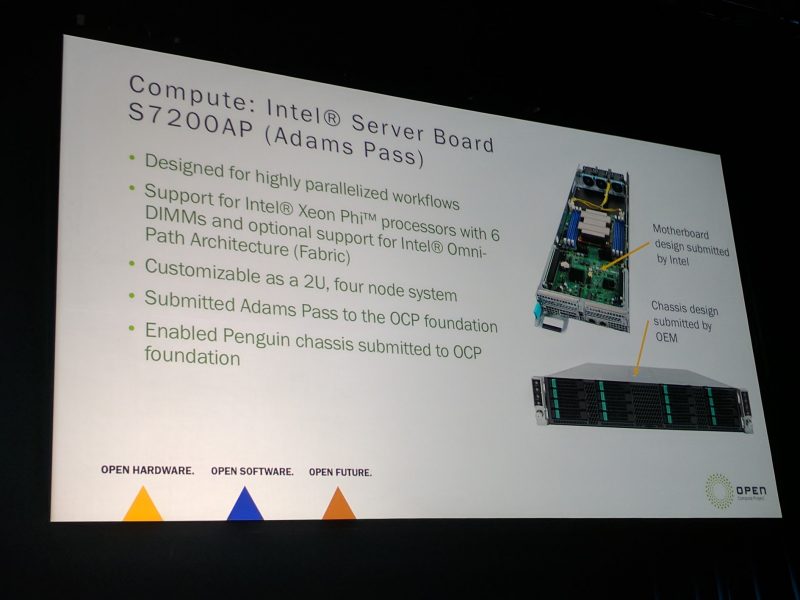
Intel is submitting the Adams Pass platform which is a 2U 4-node Intel Xeon Phi system (similar to the one we showed here) that packs four CPUs for up to 25 TFLOPs in a 2U system. Intel submitted the board design to OCP foundation ahead of the summit. Likewise, Penguin Computing is submitting the chassis design to the OCP foundation. Intel is likely feeling pressure from NVIDIA, IBM and others and is submitting a standardized platform to the community.
OCP Microsoft Project Olympus System
Intel Skylake-EP plus Arria 10 FPGAs are a key building block of the Microsoft Project Olympus OCP system. A full Skylake-EP system was brought on stage:
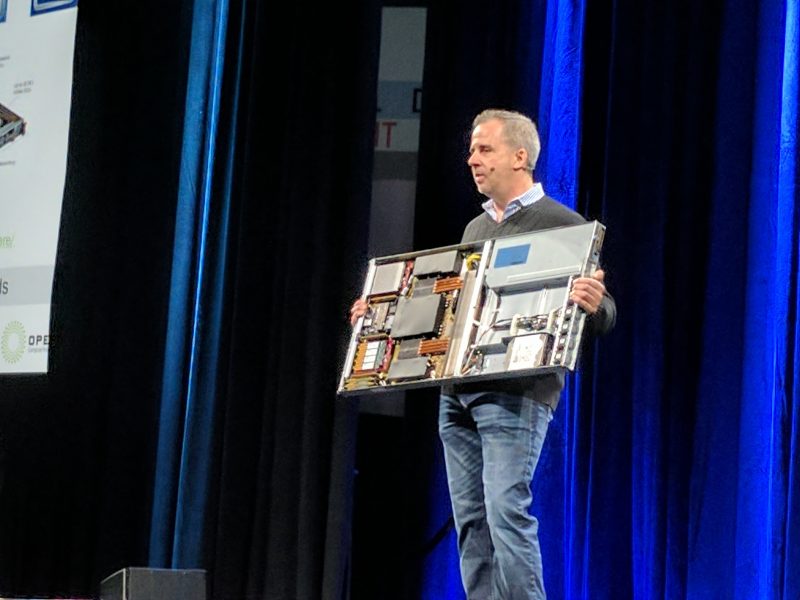
Here is Intel’s overview slide on Project Olympus.
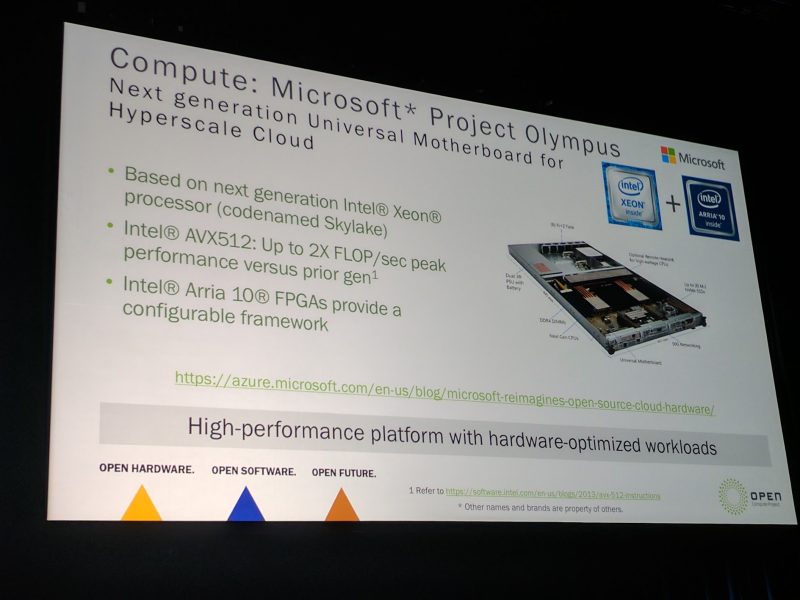
Microsoft touted Project Olympus heavily in its keynote. You can read more here Microsoft at Open Compute Summit 2017: AI and ARM64 with Cavium and Qualcomm also from the Summit keynotes.
Intel Rack Scale Design Updates
Intel is already on Intel Rack Scale Design v2.1 which it released in February 2017. We highlighted Intel RSD previously so we are simply going to present the slides.
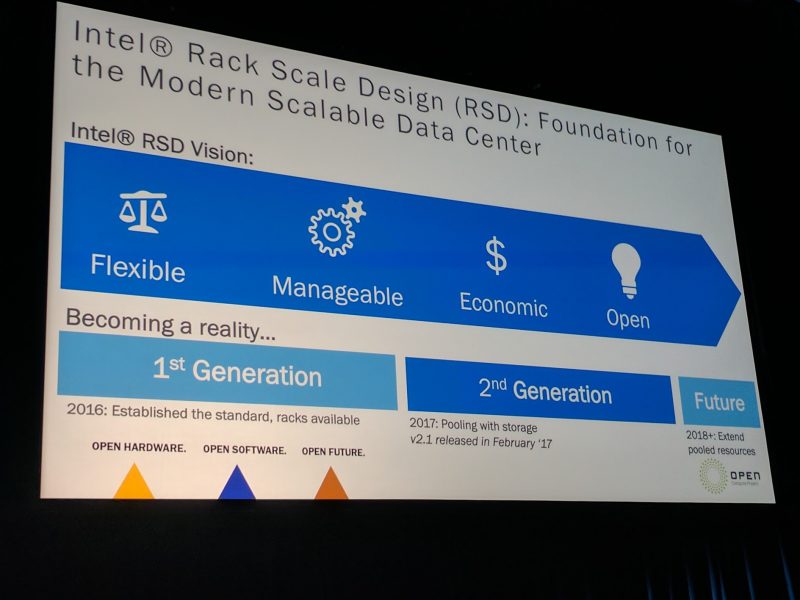
Intel was heavily promoting its software contributions as a differentiator compared to some of its upcoming OCP platform competitors.
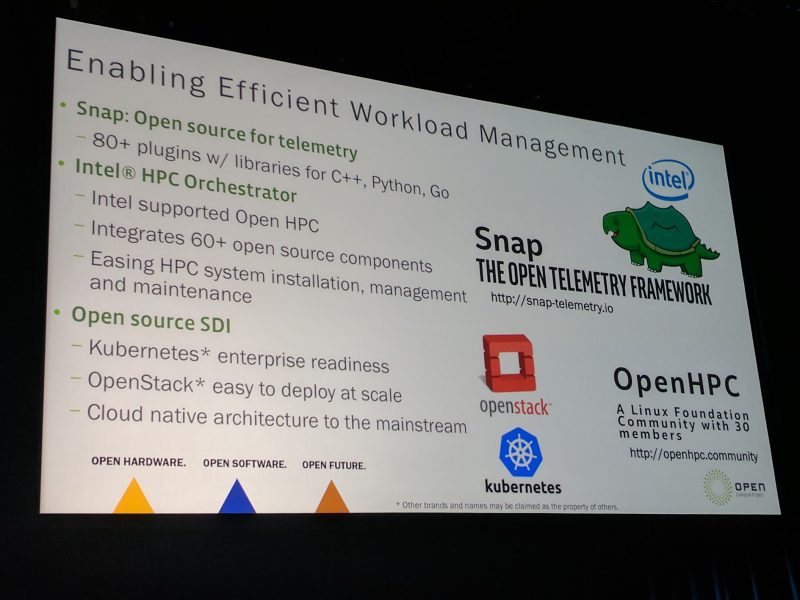
One of the big points from Intel RSD 2.1 is software defined power monitoring and management. Intel highlighted how it is adding intelligent power management to RSD along with its partners.
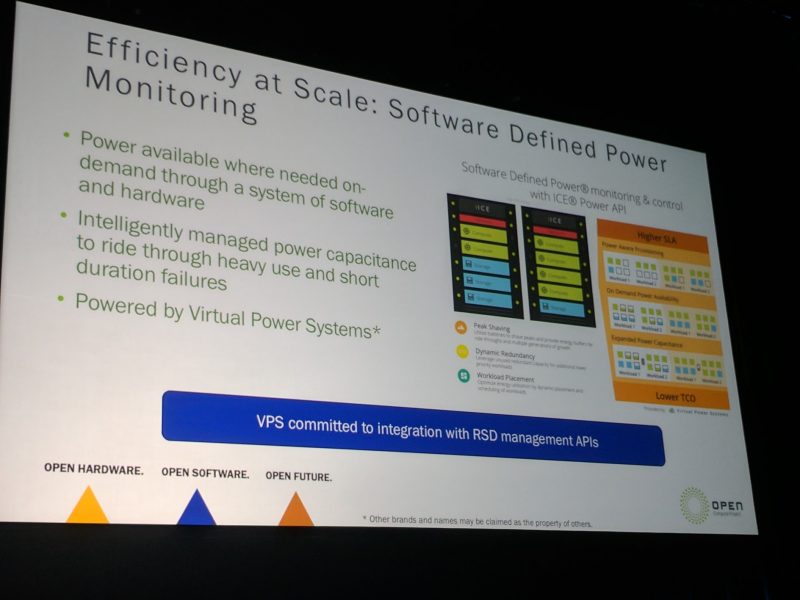
For those who want to use Intel RSD 2.1 it will be on GitHub soon.
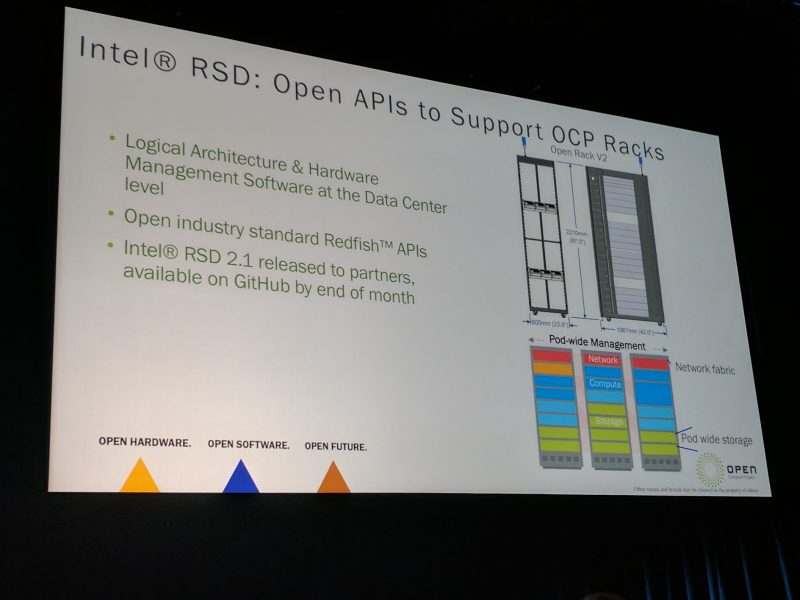
Intel RSD is one of the big drivers behind Redfish APIs that will replace traditional IPMI management in the next few years. We are excited to see this standard become more mature.

